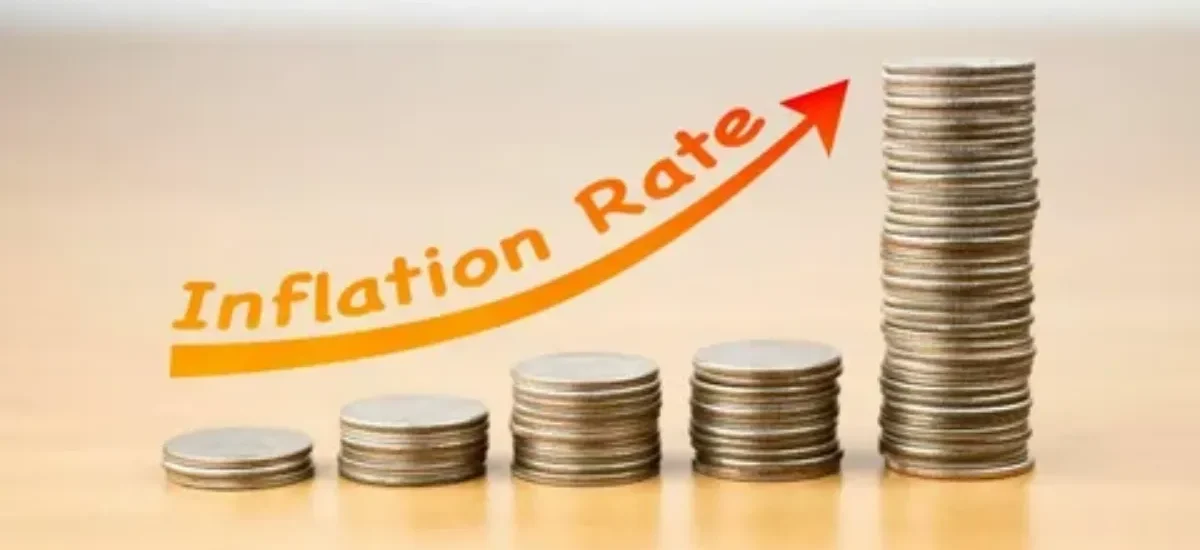Understanding High Inflation

In recent times, the global economy has been experiencing a surge in inflation rates, leading to concerns and speculations about its longevity. Among the institutions closely monitoring and analyzing this phenomenon is the Bank of Canada. As inflation rates soar, it prompts a crucial question: will high inflation be a temporary blip, or does it herald a prolonged period of economic instability?
The Current Economic Landscape
Before delving into the intricacies of inflation, it’s imperative to grasp the current economic landscape. Inflation refers to the sustained increase in the general price level of goods and services over a period, typically measured annually. In the face of global supply chain disruptions, increased demand, and other contributing factors, inflation rates have seen a significant uptick.
What Is Inflation, and Why Does It Matter?

Inflation impacts every aspect of the economy, from the cost of living to investment decisions. When prices rise, consumers experience a decrease in purchasing power, affecting their standard of living. Businesses adjust their pricing strategies, and investors reassess their portfolios in response to inflationary pressures.
Factors Contributing to High Inflation
Several factors contribute to the current surge in inflation rates. Supply chain disruptions, spurred by the COVID-19 pandemic, have led to shortages in essential goods and raw materials, driving up prices. Additionally, increased consumer spending, fueled by stimulus measures and pent-up demand, has exacerbated inflationary pressures.
Bank of Canada’s Perspective on Inflation

The Bank of Canada, as the country’s central bank, plays a pivotal role in managing inflation and ensuring economic stability. Through its monetary policy decisions, including setting interest rates and influencing the money supply, the Bank seeks to achieve its inflation target of 2%, maintaining price stability while supporting economic growth.
The Debate: Is High Inflation Temporary?
Amidst the current inflationary environment, there exists a debate among economists and policymakers regarding its transitory nature. While some argue that inflationary pressures are temporary, driven by temporary factors such as supply chain disruptions and pent-up demand, others express concerns about the potential for sustained inflationary trends.
Analyzing the Causes of Inflation

To understand the trajectory of inflation, it’s essential to analyze its underlying causes comprehensively. Beyond immediate factors like supply chain disruptions and increased demand, structural factors such as demographic changes, technological advancements, and government policies also influence inflationary trends.
Impact of High Inflation on Consumers
High inflation rates have tangible consequences for consumers, affecting their purchasing power and overall financial well-being. As prices rise, households may need to allocate a larger portion of their income towards essential expenses, leaving less room for discretionary spending and saving.
Strategies for Managing Inflation Risks

In light of rising inflationary pressures, individuals and businesses alike must adopt strategies to mitigate inflation risks. Diversifying investment portfolios, hedging against inflation through inflation-indexed securities, and renegotiating contracts with built-in price adjustments are among the measures that can help navigate inflationary environments.
Bank of Canada’s Response and Monetary Policy
The Bank of Canada closely monitors inflation trends and adjusts its monetary policy stance accordingly. While maintaining its commitment to price stability, the Bank may implement measures such as adjusting interest rates or altering the money supply to counteract inflationary pressures and support economic recovery.
Global Perspectives on Inflation

Inflationary trends are not unique to Canada but are observed globally, albeit with varying degrees of severity. Central banks worldwide are grappling with the challenge of balancing inflation control with economic stimulus measures, navigating the complexities of a post-pandemic economic landscape.
Predictions and Future Outlook
As economists and policymakers continue to monitor inflationary developments, making accurate predictions about its trajectory remains a challenging task. The future outlook depends on various factors, including the effectiveness of policy responses, the evolution of global economic conditions, and unforeseen external shocks.
Navigating Through Uncertainty

In the question of whether high inflation will prove to be temporary remains unanswered. While temporary factors may contribute to the current surge in inflation rates, structural changes and policy decisions will ultimately shape its trajectory. Navigating through this period of uncertainty requires vigilance, adaptability, and informed decision-making from all stakeholders in the economy. As the Bank of Canada continues to monitor inflationary developments and adjust its policy stance accordingly, individuals and businesses must remain resilient in the face of evolving economic challenges.
Click here for more visited Posts!



